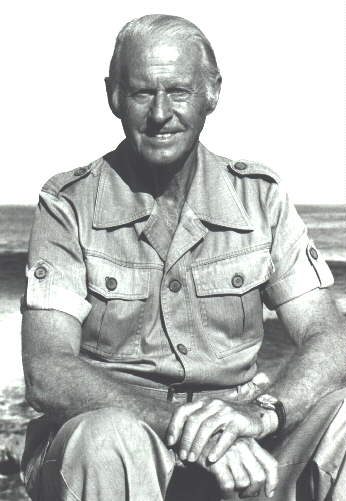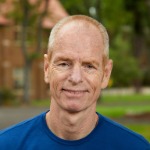Page 21 • (1,269 results in 0.035 seconds)
-

October 17, 2014 3 Free Events at PLU Celebrate the Legacy of Thor Heyerdahl PLU Marketing & Communications TACOMA, Wash. (Oct. 17, 2014)—The Scandinavian Cultural Center at Pacific Lutheran University honors the 100-year anniversary of Norwegian explorer and writer Thor Heyerdahl’s birth with three events that celebrate the impact he made on PLU, environmental scholarship, anthropological theory and Norwegians around the world. Heyerdahl, who first came to the world’s attention in 1947 for his
-
submerged) aspects of culture can include deeply held values and preferences. One of the things that is tricky is that we can have a hard time understanding these deep, submerged aspects of even our own culture. We can be unaware of how the cultural values and beliefs instilled in us have shaped us and how our own culture affects us when we interact with others. This is why study away is such a fantastic learning opportunity! You can get to know your own culture much better through becoming acquainted
-
psychology. Often, anthropological research is multidisciplinary, with specialized divisions including paleoethnobotany, taphonomy and forensics. In the United states the study of anthropology is sub-divided into four major areas of specialization: cultural, archaeological, linguistic and biological anthropology. Cultural Anthropology (Ethnology) studies living human cultures in order to create a cross-cultural understanding of human behavior – distinguished by field-research conducted via participant
-
“Indigenous Environmentalism as Spiritual Responsibility: Journeys of Activism and Healing with Saint Kateri Tekakwitha” Dr. Michelle M. Jacob, PhD, is a Professor of Indigenous Studies and Director of the Sapsik’ʷałá (Teacher) Education Program in the Department of Education Studies at University of Oregon. 7:00 pm | Tuesday, Feb 20 | Scandinavian Cultural Center Free and Open to the Public The PLU Religion Department welcomes you to the Paul O. Ingram lecture at 7p.m. Tuesday, February 20th
-

Ron Byrnes Associate Professor of Education Phone: 253-535-7286 Email: byrnesrs@plu.edu Office Location:Hauge Administration Building Professional Biography Education Ph.D., University of Denver, 1993 M.Ed., University of California, Los Angeles, 1985 B.A., University of California, Los Angeles, 1984 Areas of Emphasis or Expertise High School Education Reform Cultural Globalization Social Studies Curriculum Development Biography Ron was a high school social studies teacher in Los Angeles and
Area of Emphasis/Expertise -

Ron Byrnes Associate Professor of Education Phone: 253-535-7286 Email: byrnesrs@plu.edu Office Location:Hauge Administration Building Professional Biography Education Ph.D., University of Denver, 1993 M.Ed., University of California, Los Angeles, 1985 B.A., University of California, Los Angeles, 1984 Areas of Emphasis or Expertise High School Education Reform Cultural Globalization Social Studies Curriculum Development Biography Ron was a high school social studies teacher in Los Angeles and
Area of Emphasis/Expertise -

Ron Byrnes Associate Professor of Education Phone: 253-535-7286 Email: byrnesrs@plu.edu Office Location:Hauge Administration Building Professional Biography Education Ph.D., University of Denver, 1993 M.Ed., University of California, Los Angeles, 1985 B.A., University of California, Los Angeles, 1984 Areas of Emphasis or Expertise High School Education Reform Cultural Globalization Social Studies Curriculum Development Biography Ron was a high school social studies teacher in Los Angeles and
Area of Emphasis/Expertise -
panels are held in the Scandinavian Cultural Center, AUC. Refreshments provided. Tuesday April 2, 6 p.m. | Business Alumni Panel and NetworkingRoom: Scandinavian Cultural Center, AUC Join us for a Q&A panel from PLU alumni industry professionals to gain first hand insight into the business field. Additionally, hear how their graduate education played a role in their career development. There will also be a time at the end to network with the panelists and other attendees.Wednesday April 3, 6 p.m
-
enumerated.UseMuseum specimens are used by students in PLU courses as tools for exploring biodiversity. Having access to a diversity of preserved specimens gives PLU students a unique opportunity to directly interact with diverse organisms in ways that would otherwise not be possible. Current courses that utilize museum specimens include: BIOL 226 (Genes, Evolution, Diversity, and Ecology); BIOL 352 (Comparative Anatomy); BIOL 353 (Invertebrate Zoology); BIOL 354 (Natural History of Vertebrates); BIOL 355
-
spring, the schools have an opportunity for a Skype or WeChat interview, then the host schools and teacher candidates begin the application process for the J-1 visa. For more information about the state’s Nonimmigrant Exchange Teacher Certificate, visit OSPI > International Exchange and Visiting Teacher Programs. Visiting teachers from China can enrich a school’s community in so many ways. But it is also a challenge to bridge cultural gaps and help a young teacher from faraway feel at home and
Do you have any feedback for us? If so, feel free to use our Feedback Form.


